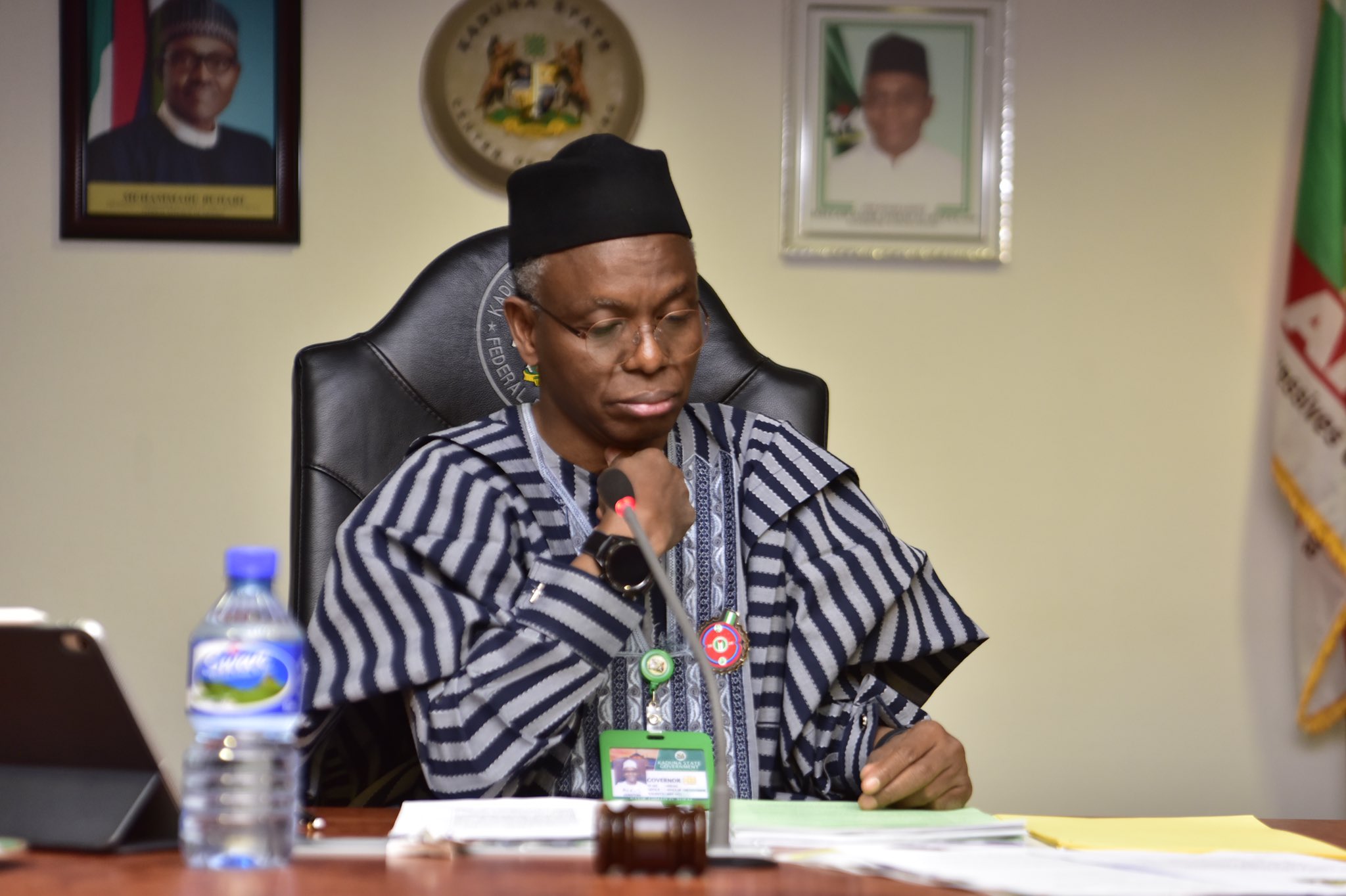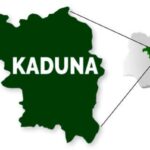The Kaduna State government on Tuesday confirmed that it is working on an executive bill that will reform the composition and classification of the state’s chieftaincy and traditional council.
This is as suspense persists over the delayed appointment of a new emir of Zazzau.
- Zazzau Emirate: El-Rufai to reform Kaduna traditional council
- Emir of Zazzau: Kaduna govt orders fresh selection process
Daily Trust reports that Governor Nasir el-Rufai announced that he was in a meeting with the state’s Council of Chiefs shortly after his return from the State House of Assembly but details of the meeting were not made public and the meeting was still ongoing as of the time of filing this report.
Our correspondent reports that the government’s confirmation of the proposed bill is coming amidst speculations that the governor had been working on a bill to balkanize the Zazzau emirate into three emirates to accommodate three major contenders for the Zazzau emirate.
But this claim was punctured on Tuesday by a source close to the government who said the plan to reform the traditional council had been there long before the death of Emir Shehu Idris.
The Zazzau emirate is a first-class emirate which is also the largest in Kaduna State, comprising 11 local government areas including Zaria, Sabon Gari, Giwa, Kudan, Makarfi, Ikara, Kubau, Soba, Igabi, Kaduna North and Kaduna South LGAs.
The stool became vacant on September 20, following the death of the 18th emir, Alhaji Shehu Idris, who died at the age of 84 after a brief illness at the 44 Reference Hospital, Kaduna.
Daily Trust reports that aside from the stool of Emir of Zazzau, the Agwom Adara and the Emir of Jere stools have remained vacant since the demise of the occupants.
Governor el-Rufai had last week directed the five kingmakers of the emirate to begin a fresh selection of candidates for the 19th Emir of Zazzau after he jettisoned the earlier list submitted to him.
It was gathered that the proposed bill, when assented, will have the Magajin Gari, Alhaji Ahmad Nuhu Bamalli, the governor’s ally as the Emir of Kaduna; the Yariman Zazzau, Alhaji Muhammed Munnir Jafaru, as Emir of Zaria and the Iyan Zazzau, Alhaji Bashar Aminu, as the Emir of Kudan.
However, while confirming the existence of the chieftaincy and traditional council bill, Governor el-Rufai on Tuesday did not specify the content of the bill but said it will be forwarded to the House of Assembly as part of his government’s efforts to strengthen governance.
El-Rufai, who spoke while presenting the N237.5bn 2021 budget before the state House Assembly, stated that: “The Chieftaincy and Traditional Council bill will entrench the reform of the chieftaincy system, specify composition and classification of emirates and traditional council and update the provisions of colonial laws and chieftaincy matters that we inherited.”
The state government has not responded to our request for comment on the Chieftaincy and Traditional Council bill it is proposing but our correspondent gathered from the House of Assembly that the bill will be part of the legislative programme for 2021.
However, another source who is privy to the bill that sought to reform the traditional institution in Kaduna told the Daily Trust last night that it will not affect the Zazzau Emirate.
“The bill is only meant to repeal some colonial laws in line with the realities of our time,” he said.
Reforming the chieftaincy system is not new – Historian
A historian, Dr. Shuaibu Shehu Aliyu, said this is not the first time a sitting governor had made attempts to amend the state’s chieftaincy and traditional council law adding that “you can look at the bill from two perspectives; it could be something to worry about or something not to worry about.”
Though the content of the proposed bill is not known, Dr Aliyu, who is the Director of Arewa House said: “The law in relation to the appointment and deposition of chiefs is not sacrosanct and has passed through many changes to take certain circumstances into effect not only in Zazzau emirate but all the emirates in northern Nigeria.
“It is not something new, but it could also be something to worry about because we never agitated for the balkanization of the emirate of Zazzau. If you look at the 1957 Kaduna Capital territory bill, there was the agitation of whether an emir should be created for Kaduna and on that issue, the northern regional government invited the then emir of Zazzau, Jafaru to discuss with him that they wanted to excise Kaduna to address some political challenges where the NEPU was mounting pressure within the Kaduna metropolis.”
He stated that on that basis, the then emir of Zazzau had agreed on the condition that an emir will never be appointed for Kaduna “and on that they made it independent of Zaria Native Authority that is why we have the Magajin Gari or a sole administrator appointed for Kaduna capital territory.”
The historian, however, said, given Governor el-Rufai’s antecedent for respecting the traditional institution, it is unlikely that he would attempt to balkanize the Zazzau emirate.
“It is good if he reviews the law to modernise and reposition the institution to provide it with roles particularly in the area of community policing,” he said.
He urged residents to remain calm and said it was normal for the selection of an emir to be delayed.
“The Emir of Jere died over five months ago and a new emir has not been appointed yet. Even in Zaria, it is not the first time that the appointment of an emir in Zazzau emirate is being delayed. When Emir of Zazzau Ibrahim died on the 31st of January 1937, Jafaru was not appointed until the 15th of February 1937 and likewise when Emir Aminu died, Shehu Idris was not appointed until after eight days,” he said.
“The Zazzau emirate is one of the single emirates in which the four ruling houses do not share commonality in terms of blood. Their only connection is the Jihad, carried out by the famous scholars from the dynasties; Musa from the Mallawa clan, Yamusa from the Bare-Bari ruling clan, Abdulkarim from the Katsinawa ruling clan and Abdulsalam from the Sullubawa ruling clan.
“That is why appointing an emir has become very tensed and competitive; because each and every ruling house is trying to bring back the throne to its dynasties,” he explained.

 Join Daily Trust WhatsApp Community For Quick Access To News and Happenings Around You.
Join Daily Trust WhatsApp Community For Quick Access To News and Happenings Around You.


